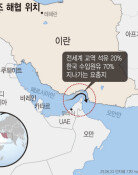[Editorial] Roh Administration Failed to Read Peoples Minds
[Editorial] Roh Administration Failed to Read Peoples Minds
Posted August. 22, 2005 03:11,
Kim Byung-jun, the chief of the Presidential Policy Office, said yesterday that the Roh Moo-hyun administrations achievements in its first-half of office are election culture reform, the extinction of links between politicians and businessmen, and the reduction of powers from government agencies, and said, There is no perfect administration. Please do not put too much stress on minor problems. He said that the party system based on regional antagonism and economic bipolarization are causes for crisis, and that the real crisis is that people do not appreciate it.
His main point was that there are some problems, such as economic slowness and youth unemployment for the time being, but that the overall situation in the long term is going smoothly. However, his self-assessment proves that the administration is in crisis, seeing that he does not appreciate it, as he said.
The most important criterion for governance is the quality of peoples livelihood. According to a survey conducted by Dong-A Ilbo last weekend, those surveyed gave the Roh administration a 44 out of 100 score for its economic policies. To the question asking what the administration has failed in, the four top answers were pertaining to economic policies (failure of real estate policies, unstable prices, the widening rich-poor gap, and the high unemployment rate). In addition, 54 percent answered that economic recovery should be the top priority in the second half. This demonstrates what Koreans want the president to do.
What is troubling is that 76 percent answered that their economic status would stay the same or deteriorate in the second half of Rohs term, despite Kims boasting that the long-term situation would go well. The anxiety mostly derives from the governments amateurish policy implementation, rash reforms, and wrong policy priorities.
Kim cited regional division as one of the most important areas that require more governmental efforts, but the survey revealed that only 1.2 percent agreed with that. All the worse, it is the government and the ruling party that exacerbate regional divisions. The ruling party pandered to regional antagonism when it dealt with the recent bugging scandal. The choices of the new justice minister, chief of the National Intelligence Service, and Chief Justice of the Supreme Court also triggered controversy over regional favoritism.
The right prescription cannot be drawn without the right diagnosis. The Roh administrations self praise makes the prospects for the second half dim.



![아침 공복 따뜻한 물 한 잔, 정말 살 빠지고 해독될까?[건강팩트체크]](https://dimg.donga.com/c/138/175/90/1/wps/NEWS/IMAGE/2026/03/05/133467930.3.jpg)



